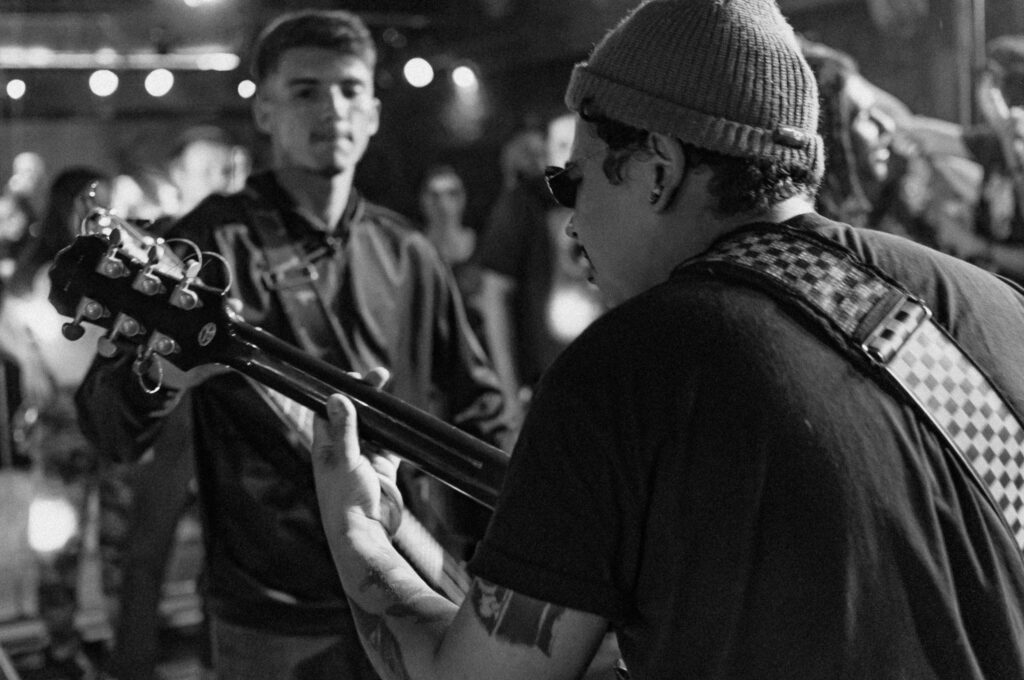Rock music has long been a powerful tool for social and political change. From its earliest days, rock bands have used their music to voice discontent, challenge authority, and reflect the mood of the times. Protest songs, in particular, have played a crucial role in highlighting social issues and inspiring movements, creating a soundtrack for generations striving for change.
Whether it’s the defiance of the 60s or the politically charged anthems of today, rock music has continuously provided a platform for addressing everything from civil rights to war, inequality, and environmental concerns. In this article, we’ll take a closer look at the evolution of protest songs within rock music, their impact, and their continued relevance today.
Let’s look at today’s article:
- The 60s and 70s: Iconic protest songs from Bob Dylan, The Doors, and others
- The 80s to 90s: Songs like “Fight the Power” and “American Idiot” as vehicles for social commentary
- How modern rock bands use their platforms to discuss political and social issues
- The continuing relevance of protest songs in rock music today

The 60s and 70s: Iconic protest songs from Bob Dylan, The Doors, and others
The 1960s and 70s were pivotal decades for protest music, as rock bands and artists became increasingly outspoken in response to the political and social upheaval of the time. This era saw the rise of civil rights movements, anti-war protests, and youth revolutions, all of which found expression in music.
Bob Dylan is perhaps the most iconic figure in the history of protest rock. His songs became anthems for social change, with tracks like “Blowin’ in the Wind” and “The Times They Are a-Changin’” capturing the hopes and frustrations of the time. Dylan’s lyrics often served as a critique of government policies, racial inequality, and the Vietnam War, resonating with audiences who felt disillusioned by the status quo. His ability to blend folk traditions with rock music made his protest songs powerful and widely accessible, turning him into a figurehead for a generation fighting for civil rights and peace.
Meanwhile, The Doors brought a different kind of protest to rock with their psychedelic and existential approach to music. Songs like “The Unknown Soldier” and “Peace Frog” reflected the uncertainty and dissatisfaction of the time, touching on themes of war, corruption, and personal freedom. The Doors used their music not just as a form of entertainment, but as a tool for social commentary, challenging the norms of American society and offering a raw, unfiltered look at the struggles of the era.
Other artists from the 60s and 70s, like Creedence Clearwater Revival with “Fortunate Son” and Edwin Starr with “War,” also used their platform to highlight the injustices of war and the social divide. These songs brought attention to issues such as the draft during the Vietnam War, class inequality, and the disillusionment of youth. The power of rock as a vehicle for protest was evident – it wasn’t just about making music, but about making a statement that could spark conversation and drive change.

The 80s to 90s: Songs like “Fight the Power” and “American Idiot” as vehicles for social commentary
As we moved into the 80s and 90s, protest rock continued to evolve, reflecting the changing political landscape. In the 80s, the world saw the rise of global political tensions, with the Cold War, apartheid in South Africa, and nuclear disarmament becoming central issues. Rock music responded to these concerns with more direct and confrontational messages.
One of the most famous protest anthems from this period is Public Enemy’s “Fight the Power.” Released in 1989, the song became an anthem for racial equality and social justice, voicing the frustrations of African Americans in the face of systemic racism. With its strong political message and energetic delivery, “Fight the Power” wasn’t just a song – it was a rallying cry for social change, and its impact extended far beyond the music world.
In the 90s, the rise of alternative rock saw bands like Green Day use their platform to speak out on political issues. The band’s American Idiot album, particularly the song “American Idiot,” was a sharp critique of American politics, particularly the Bush administration and the Iraq War. The album’s aggressive sound and direct social commentary made it one of the most politically charged rock albums of the decade, reaching a wide audience and sparking important conversations about government policies, media influence, and national identity.
Other bands like Rage Against the Machine also became known for their unapologetic political activism. Songs like “Killing in the Name” and “Bulls on Parade” challenged authority and corporate power, giving voice to those who felt oppressed by the system. Rage Against the Machine used their music to address issues such as police brutality, inequality, and the power of large corporations, making them one of the most influential protest bands of the 90s.
How modern rock bands use their platforms to discuss political and social issues
In today’s world, rock music continues to be a powerful tool for social change, with modern bands addressing a range of issues, from climate change and social justice to political corruption and inequality. As we look at the current political climate, it’s clear that the tradition of protest rock is alive and well.
Bands like Green Day and Rise Against continue to use their music to challenge the status quo. Green Day’s Revolution Radio album, which includes songs like “Bang Bang,” addresses issues of violence, political unrest, and the rise of social media. The album captures the anxiety of living in a politically charged world, much like American Idiot did years earlier.
Rise Against, known for their punk-infused rock, has also been vocal about issues such as environmentalism, human rights, and the fight against corporate greed. Their songs like “Satellite” and “Make It Stop (September’s Children)” speak to the frustrations of living in an unequal world, calling for change and action. The band’s commitment to using music as a tool for social commentary has made them one of the most prominent voices in modern protest rock.
Another modern rock band that has embraced protest in their music is Imagine Dragons, with songs like “Warriors” and “Believer” addressing personal struggles as well as larger societal issues. While their approach is more anthemic and less directly political, their music still taps into the spirit of social change, using their platform to inspire listeners to take action.
The continuing relevance of protest songs in rock music today
Protest songs have been a central part of rock music since its inception, and their relevance continues to endure today. Whether it’s the anti-war anthems of the 60s or the modern political commentary of today’s bands, rock music provides a platform for discussing issues that matter – from social justice to environmentalism and beyond.
Let’s recap today’s article:
- The 1960s and 70s saw the rise of protest songs as a reaction to political, societal and economic change
- Bob Dylan, The Doors, Edwin Starr, and Creedence Clearwater Revival were among the first to voice their criticism in the form of a protest song
- The 1980s and 1990s saw a different kind of protest, more overt, rawer and more angry than the 60s and 70s ever were: Public Enemy, Green Day, and Rage Against the Machine dominated the rock scene and were voicing their concerns very openly.
- Green Day and Rise Against continue this tradition of merging music and political, societal and economic change in their songs: Even Imagine Dragons have joined the barrage of protest songs with their songs addressing personal struggles.
- Music is a medium for expression and creativity: It is only reasonable that it should also be used to show solidarity, voice concern and point out social injustices of the day.
- Rock music has always been powerful in expressing these suppressed emotions and has played an important role in the past.
The power of rock as a vehicle for protest lies in its ability to connect with people on a visceral level. The energy, emotion, and defiance of protest rock inspire listeners to reflect on the world around them and, in many cases, take action. As long as there are issues to fight for, there will be protest songs to voice those concerns, ensuring that rock music remains a powerful force for social change for generations to come.








